Hear from three Black leaders making a difference in Texas health care as they discuss what has inspired their careers, the impact they hope to have on their communities and how Texas hospitals can continue to promote diversity, equity and inclusion.
DeLancey Johnson, DBA, SPHR, SHRM-SCP, sHRBP
Senior Vice President and Associate Chief Talent Officer, Parkland Health

Early in my career, I experienced disenchantment with my dream job, so I was pushed to explore other industries, careers and passions. As a result, I was pulled toward health care, and it has truly been life-changing. As with all aspects of change it required transformation and patience. While identifying my desired scope I discovered that human resources (HR) in health care was my calling. Over the years I have been an individual contributor and led multiple teams that were both traditional and non-traditional HR departments. As a result, it allowed me to self-discover my purpose in health care, which aligned with what inspired me to join originally. I have the opportunity to positively impact and add value to the lives of employees, the community and patients. In essence, I can make a difference in the lives of people at work and in the Dallas community.
As a Black leader in health care, I can create and expand spaces and programming aimed at breaking down stigmas. In 2023, health care HR is currently positioned to address the systemic inequities that have been embedded in the workplace for generations. For example, we can establish awareness especially tied to social change and workplace equity. I use my influence to model appropriate behaviors to discuss race and help build a culture where equity and inclusion are embraced authentically and not avoided. I also hope that we can continue to create initiatives to accelerate progress toward a more inclusive and equitable experience for all races.
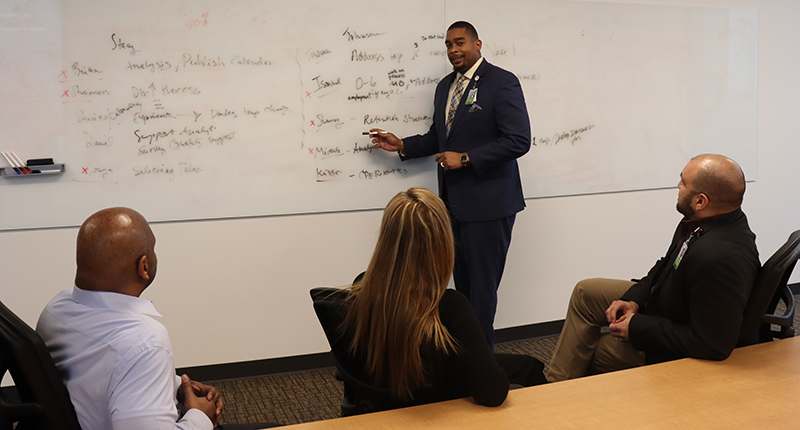
I genuinely love working with people at work and in the community. I often immerse myself within the community and surround myself on governing boards with people who are dedicated to enhancing health care, community and HR. When I speak at events or with youth, I strive to provide a unique sense of purpose that hopefully will manifest. I also discovered that when you give back it is a great way to get to know your community. In my experience, partnering alongside people with broad open-minded perspectives from different walks of life helps me as an HR Practitioner and as a member of the community, so I strive to have the same impact.
In my experience including and involving people from different life experiences to participate in a goal or a desired outcome promotes diversity, equity and inclusion. I personally embrace people with different backgrounds, beliefs, attitudes and experiences. Due to the fact numerous studies have shown that when hospitals promote diversity, equity and inclusion it can benefit the happiness and progress of the community and the workforce. However, we also must be mindful that everyone does not have the same starting line and to be successful we should meet people where they are. As a leader, I would recommend listening more than you tell. Gather as much information as possible and try to make sense of it. Ask tons of questions and listen carefully to the answers. Don’t make assumptions, and don’t judge. Most importantly, always remember that diversity, equity and inclusion is a journey, not a destination.
Loren K. Robinson, M.D., MSHP, FAAP
Chief Medical Officer and Vice President of Medical Affairs, CHRISTUS St. Michael Health System

I entered the field of health care inspired by the example and leadership of both my parents, Dr. Luther Robinson, a pediatric geneticist and Mrs. Jan Robinson, a pediatric nurse practitioner. Growing up seeing them take care of other people and give back to the community, inspired me to pursue a similar path. After becoming a mom in 2019, I would say that I continue to be inspired and motivated to improve health care for future generations so that my children and their peers will have equal opportunity for excellent health care options no matter where their lives take them.
Being a Black leader in health care, I constantly reflect on what a different experience in health care many people living today experienced in their youth. I strive to be an example of excellence and professionalism and to advocate not only for health equity, but also for continued commitment to growth and diversification amongst our health care providers and in our C-suites, government, leadership of public and private partners in health care.
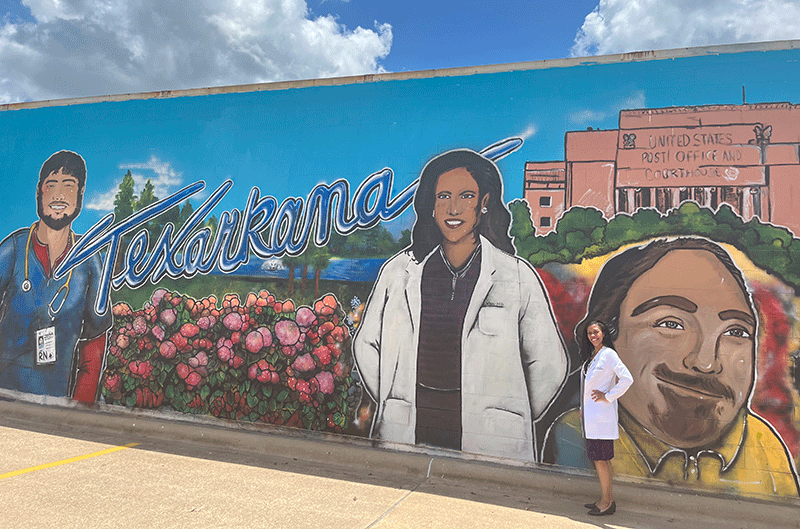
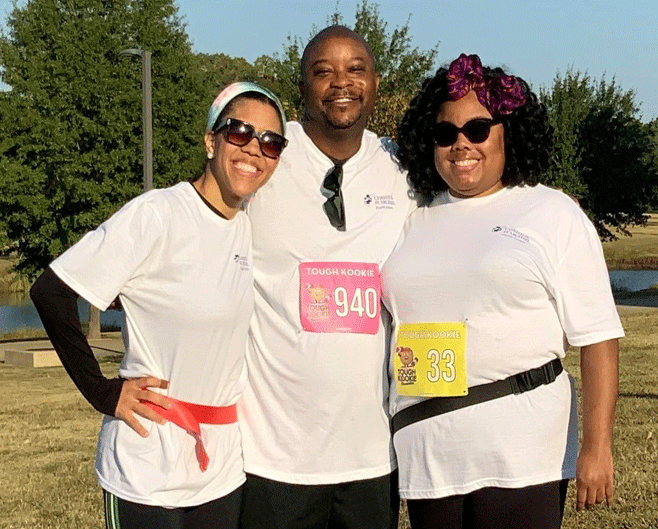
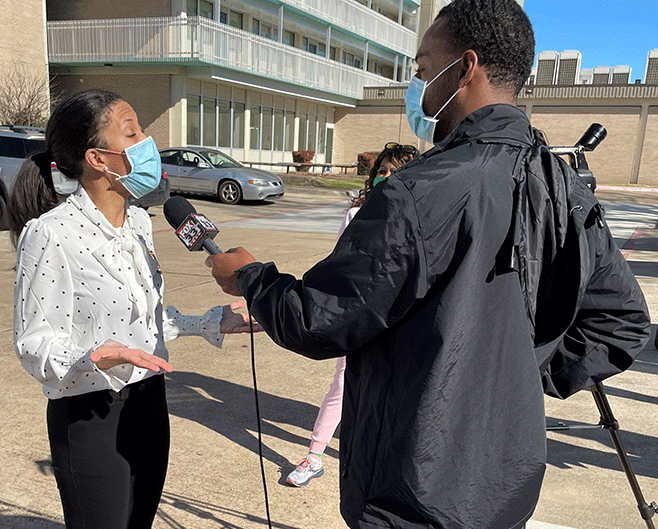
I hope that my work continues to strengthen the Texarkana community and Ark-La-Tex/Northeast Texas region as a health care leader. Supporting the growth of health care services provided in our ministry allows our community to get the health care in a region they call home. I want to continually work to eliminate health disparities and promote health equity in our region and across our country. As a Black woman in medicine specifically, I hope that younger generations are inspired to pursue health care fields and return to Texarkana to serve our community. I also hope that the generation that grew up during times of segregation, Jim Crow, and then subsequent integration, know that I respect and honor that legacy and am so thankful for the sacrifices they have made to ensure that I had the opportunity I now have to serve as a leader in our community.
Diversity, equity and inclusion is hard, but it is essential work. It can become so easy to get caught up in the demands of finance, growth, staffing, operations and other essential parts of running a hospital day to day. However, by continuing to focus on who is NOT in the room, and seeking input, promoting hires/promotions of people who do not necessarily look like oneself, ensures that leadership teams will continue to have diverse input and opinions that will fuel strategic growth. One of the ways we are able to continue to elevate DEI at CHRISTUS Health is that this work is consistent with our core values. Having the support of a hospital’s CEO is what will make or break a DEI journey. At CHRISTUS St Michael, we have a CEO who is committed to asking the tough questions and making the right decisions in the name of growing our hospital and making it a better and more equitable place not only to seek care, but also to work, no matter your background, training, race, color, or creed.

Stormee Williams, M.D., FAAP
Vice President and Chief Health Equity Officer, Children’s Health
I first entertained the idea of becoming a physician while in an engineering internship during college. When I asked about how a certain device would feel to the client and what impact it might have on them, the engineer jokingly said that that was for the doctors to figure out. I thought maybe engineering was not the right field for me because I wanted to be a part of the team that would help people feel better in a more tangible way. Shortly after this time, I lost my mother after a short battle with cancer. It was during that time that I realized how the health care system can be so overwhelming to patients and their families during some of their most vulnerable times. I wanted to have a career that would make those times a little less overwhelming by being a compassionate advocate for my patients. Over the years, I’ve seen how this looks different at the various stages of my career.
As a physician, we use our many years of knowledge and training to help our patients get better and stay healthy, and we hope to have a positive impact on their lives. As a health care leader, that impact goes beyond the individual patient. Now what inspires me is all the patients we interact with, the families they come from and the environments they live, learn and work in. I’m inspired by the staff that work in our system who show up every day in the face of their own challenges, fears and concerns. Also, I am inspired by the world around us. In my work and background as a pediatrician, I have been involved with the care of some of our tiniest members of society. I know that if we can improve the lives of these little ones and help them achieve their best health, they will be able to become healthy adults who have a positive impact on the next generation and world around us.
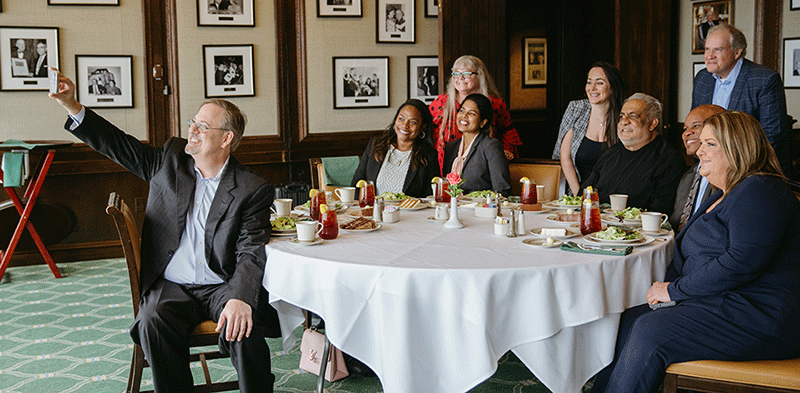
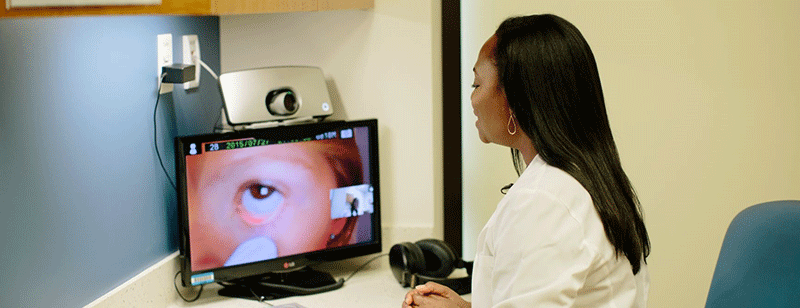
You may be familiar with the phrase “representation matters,” and that is what being a Black health care leader means to me. As a Black woman in my field, I am able to represent those families who come from diverse racial backgrounds both in clinical spaces and in meeting rooms. It is truly an honor because I realize that I stand on the shoulders of those ancestors who dared dream to not only become a doctor but to be allowed to seek health care in a hospital.
I hope that I have a positive impact on the patients and families we serve by being a true advocate for their needs and health. That means that although I may not be directly in front of the patient providing care, I still have a hand in improving their health care experience overall. Whether that is by working with our leaders to develop innovative ways of reaching our patients or by identifying and removing the barriers to health care that some of our patients face, I hope that my work has played a small part in making health care more accessible to more people regardless of their background. I also hope that I can positively influence others to do the same – to impact the lives of others so that it improves their lives overall.
To promote diversity, equity and inclusion within Texas hospitals, we should start by recognizing that we all need and should want more diverse, equitable and inclusive environments to work and serve in. By recognizing this simple fact, we are allowing the space to figure out what those environments should look like and what they need to thrive. This includes putting the leaders and resources in place to support these initiatives in an ongoing fashion. As Texas and the world around us become more diverse, we must be intentional in making sure we embrace that diversity so that we create space for everyone to thrive.
